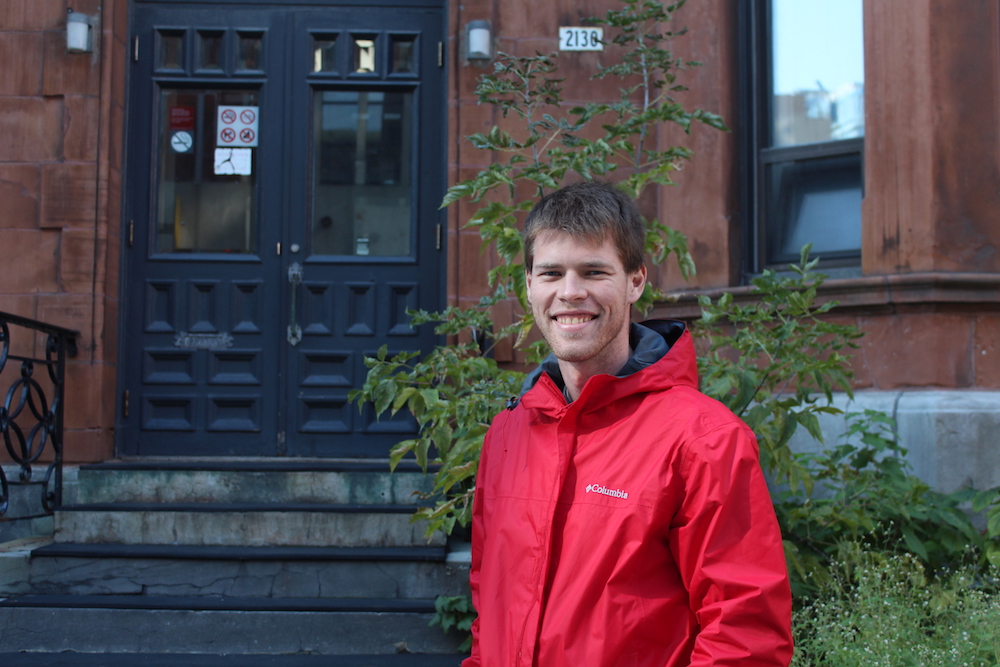Mood at the collective agreement negotiation table “excellent,” says TRAC president
Teaching and Research Assistants at Concordia (TRAC) president Alexandre St-Onge-Perron does not know when his group and the university will negotiate the financial aspects of what he hopes will be a new three-to-four-year collective agreement.
“After every meeting, we ask ourselves when we’ll talk about the monetary. I hope it will be in late February or [sooner],” St-Onge-Perron said.
The monetary aspects of the agreement include the issue of “contract splitting.” St-Onge-Perron previously explained to The Concordian that contract splitting consists of a teaching assistant being paid a wage for their time in class and a second, lower wage for marking papers.
In an e-mail to The Concordian, university spokesperson Mary-Jo Barr wrote: “All contracts are managed in accordance with the collective agreement, which is negotiated by the parties.” Article 15.05 of the 2013-16 collective agreement—the one currently in use—states that “marking duties may be the object of separate marker contracts.”
St-Onge-Perron said, when the negotiation of financial issues begin, Concordia’s negotiating team—made up of employees from human resources, professors from the political science and engineering departments, and Nadia Hardy, the vice-provost of faculty relations—might be more influenced by their superiors than they are now.
“We have to convince their bosses by mobilizing,” St-Onge-Perron said. Nonetheless, he added that the mood at the negotiating table is “excellent.”
According to St-Onge-Perron, the biggest change to come out of the negotiations so far is the changes to the process of filing a grievance complaint, which has “greatly improved.” He said the process is much easier for TRAC members than before. The new agreement will not force the two sides to be present at the same time during the grievance process, and the process will be simplified.
Notably, the time allowed for members to file a grievance will be extended. Under the current agreement, members have 40 days to file a grievance following an incident. Their window to file a grievance will now only begin at the end of the teaching or research assistant’s contract.
St-Onge-Perron explained that one of the first things members say when they come forward with issues is, “I don’t want to cause trouble,” because they don’t want to file a complaint during their contract and risk losing their position.
“Now, they won’t have that problem,” St-Onge-Perron said.
He also added that the new policy would not favour the university, which wants to avoid having students file too many grievances.
More delegates in the ranks
According to St-Onge-Perron, there has recently been a slight increase in the number of TRAC delegates. In October, Eunbyul Park, TRAC’s communications and mobilization officer, said adding delegates was one of TRAC’s priorities.
St-Onge-Perron said a substantial number of people attended the faculty of engineering’s delegate assembly, where members were free to express their concerns and question their delegate and TRAC’s executive team.
St-Onge-Perron also noted that the executive team has a meeting scheduled later this month with administrators from the department of mechanical engineering, which he defined as “previously problematic.” For instance, the department did not distribute TRAC membership forms the appropriate way, St-Onge-Perron said.
Bill 62 discussion at general assembly
St-Onge-Perron said TRAC’s executive team will ask its members if they want the union to take a position on Bill 62—a provincial religious neutrality law.
“If the answer is yes, we’ll ask, ‘What is your position?’” St-Onge-Perron told The Concordian. “We decided that it wasn’t up to the executive team to decide if TRAC was for or against it.”
Photo by Alex Hutchins
